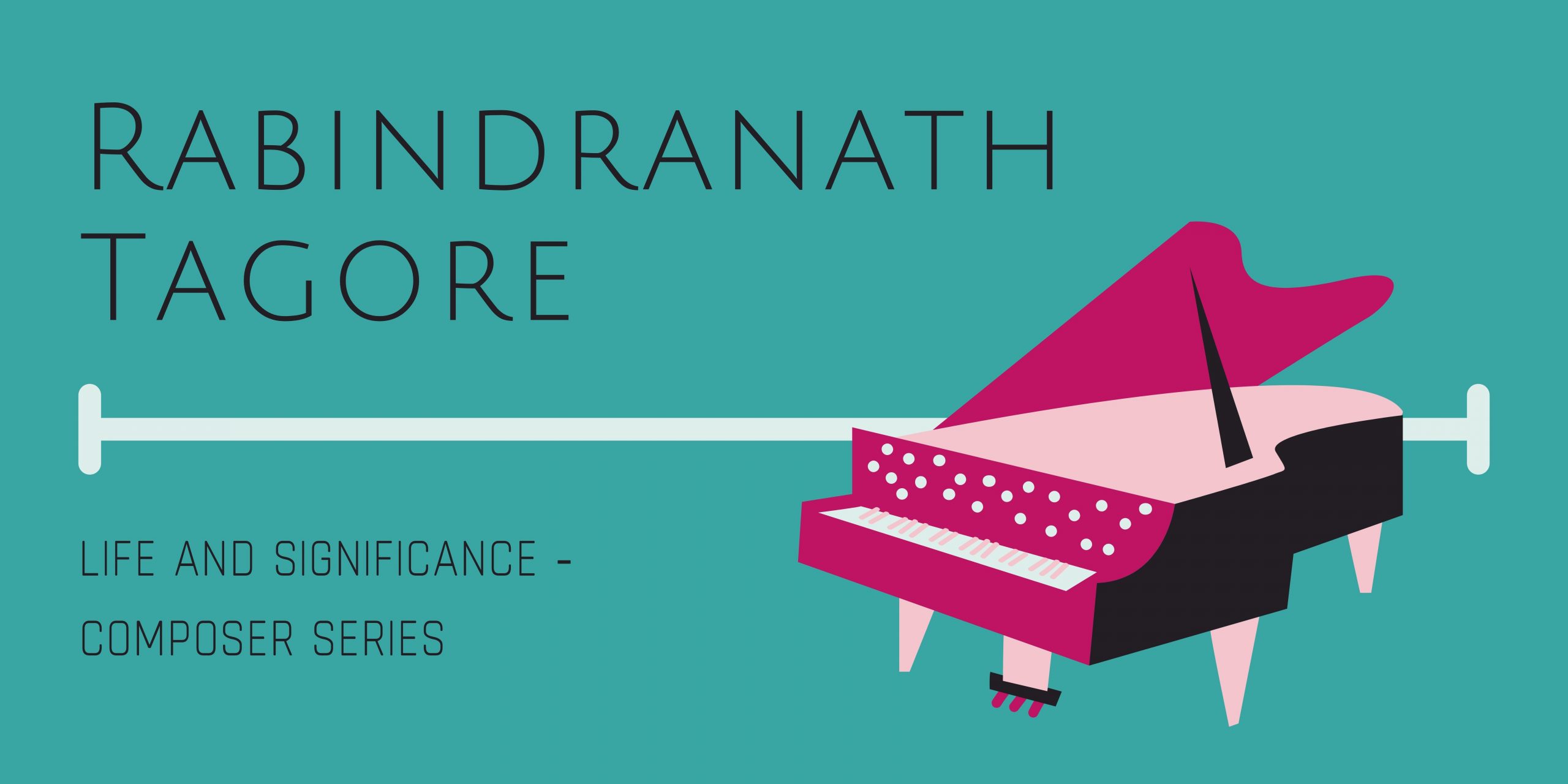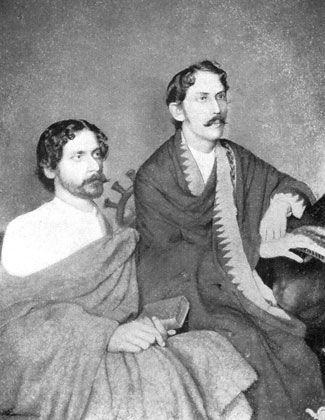Rabindranath Tagore


Written by Usri Palchaudhuri
Its not often that the world strays from their discussions on the greats of Western music— Bach, Beethoven, and Mozart, to name a few. But its important to realize the importance of world artists who have revolutionized music in ways we don’t often hear about. Today we discuss one of the most influential leaders of the Indian cultural renaissance— Rabindranath Tagore.
As he never recieved any formal training, much of what he learned about music was from what he observed around him. His elder brother Jyotindranath Tagore, who would often sit with him and Akshoy Chowdhury at the piano and compose songs, played a pivotal role in Rabindranath’s introduction to the world of music. Having grown up in the illustrious Tagore family, Tagore was exposed to various cultural influences from an early age. When he was young, Rabindranath was introduced to Hindustani classical music and a large number of his compositions were, in some way or the other, impacted by this knowledge. After a couple of years of music associated with Hindustani Classical music and the use of rhythms like the “Dhrupad Tal” which he grew very fond of, Tagore expanded his horizons.
There was a gradual progression of the music that Rabindranath wrote which adhered to his personal life as well as what was going on around him. He drew inspiration from all that he experienced.
When he was seventeen, he went to England with one of his brother, and some of his songs have been found to have English roots. He was once sent to Shelidah on business where he occupied a houseboat for some years and lived on the river Padma. It was here that he was influenced by the folk music of Bengal. He incorporated this style of music in the songs that he composed.
During the Swadeshi movement of India against colonialism, his style of writer once again changed. His main style was to cater to the flow of words within him. Whichever melody complimented and suited this flow was, according to him, the right melody for his songs.
Rabindranath composed close to 2000 songs, including the national anthems of three countries, India, Sri Lanka, and Bangladesh. He received a Nobel Prize for Gitanjali Song offerings, and is the first ever Nobel Prize winner in literature from Asia. As a pioneer of his time, the 7th of May, or Chobbishe Baishakh, as it is known in Bengali, is celebrated as Rabindra Jayanti throughout India.


Resources:

